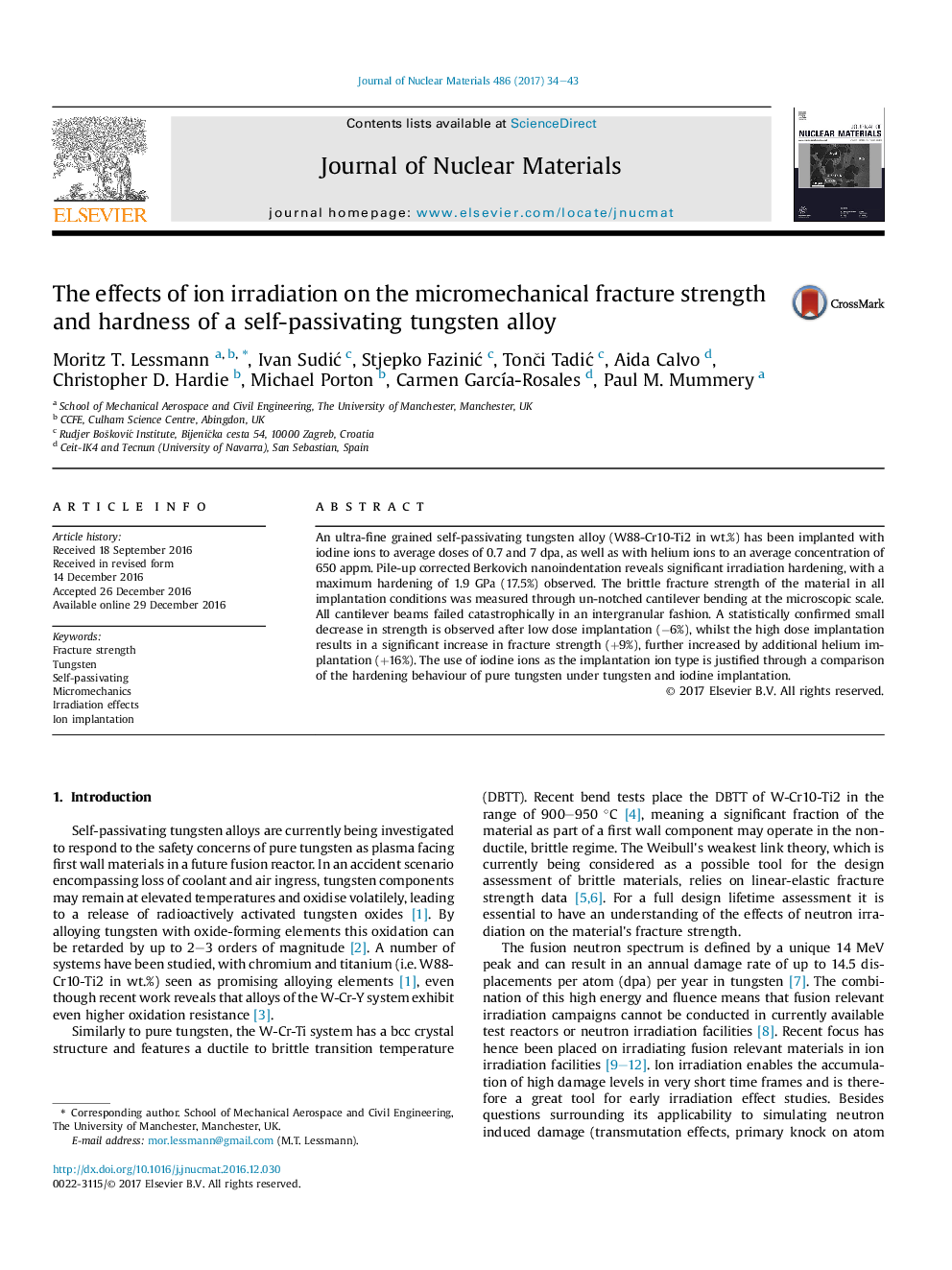| Article ID | Journal | Published Year | Pages | File Type |
|---|---|---|---|---|
| 5454209 | Journal of Nuclear Materials | 2017 | 10 Pages |
Abstract
An ultra-fine grained self-passivating tungsten alloy (W88-Cr10-Ti2 in wt.%) has been implanted with iodine ions to average doses of 0.7 and 7Â dpa, as well as with helium ions to an average concentration of 650Â appm. Pile-up corrected Berkovich nanoindentation reveals significant irradiation hardening, with a maximum hardening of 1.9Â GPa (17.5%) observed. The brittle fracture strength of the material in all implantation conditions was measured through un-notched cantilever bending at the microscopic scale. All cantilever beams failed catastrophically in an intergranular fashion. A statistically confirmed small decrease in strength is observed after low dose implantation (â6%), whilst the high dose implantation results in a significant increase in fracture strength (+9%), further increased by additional helium implantation (+16%). The use of iodine ions as the implantation ion type is justified through a comparison of the hardening behaviour of pure tungsten under tungsten and iodine implantation.
Related Topics
Physical Sciences and Engineering
Energy
Nuclear Energy and Engineering
Authors
Moritz T. Lessmann, Ivan SudiÄ, Stjepko FaziniÄ, TonÄi TadiÄ, Aida Calvo, Christopher D. Hardie, Michael Porton, Carmen GarcÃa-Rosales, Paul M. Mummery,
